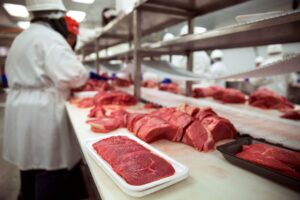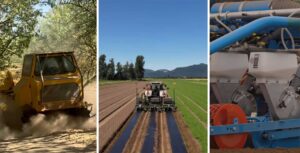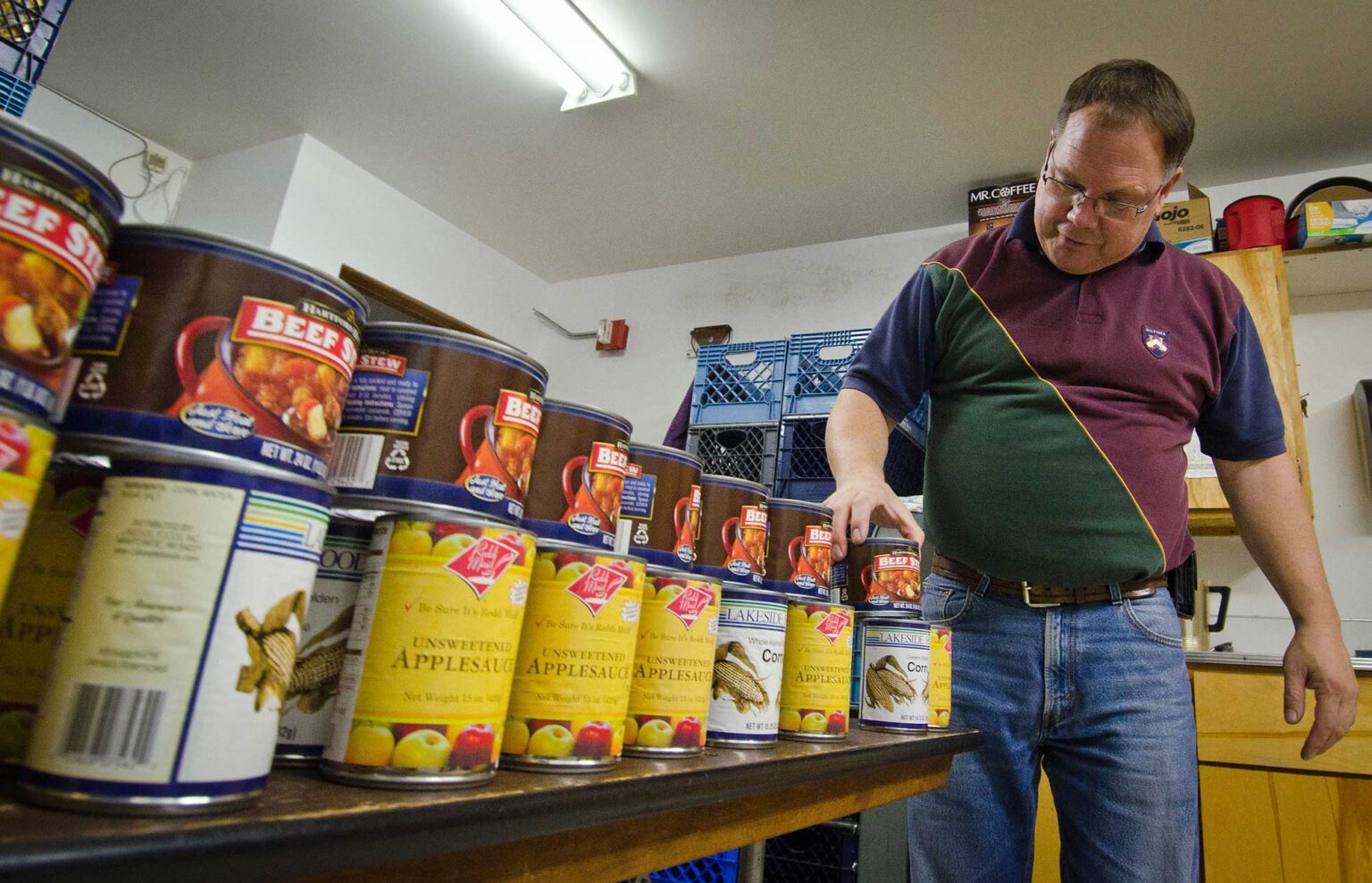Subscribe to Updates
Get the latest agriculture news and updates directly to your inbox.
Author: staff
An investigation was begun September 22 after a horse in Coffee County, Alabama, was confirmed positive for rabies. Rabies is a viral disease that is almost always fatal if untreated. The horse’s owners told the Alabama Department of Health that they noticed the horse had scratch marks on her nose and she began rubbing and showing irritation there. A friendly horse, they assumed the scratches came from a fox or raccoon that she had approached. The ill horse stopped eating, symptoms worsened over the 72 hours before her death, and she became violent and began attacking and biting herself. The horse’s…
Nutrien Ag Solutions has added new capabilities to its Nutrien Hub online platform, giving farmers more options to handle credit, payments, planning, and agronomic insights in one place. According to the company, the goal is to simplify how farmers manage their accounts and crop plans during the season. Instead of juggling paper statements, phone calls, and separate logins, growers can access retail services, financing, and weather updates in a single portal. What’s Available Now The Nutrien Hub platform brings account details, payments, and crop planning tools into one online view. Nutrien Ag Solutions Farmers using the Hub can: Credit Applications:…
According to an analysis on the American Farm Bureau Federation’s Market Intel by economist Daniel Munch, a fourth straight year of historically low Mississippi River levels is once again squeezing farm income by choking barge traffic right as harvest ramps up. Nearly half of U.S. corn and soybean exports typically move down the Mississippi system to Gulf terminals — about 65 million metric tons of bulk ag products in a normal year — making this corridor the price-and-reliability backbone of U.S. grain trade. When the river runs shallow, that advantage erodes fast. Munch details how persistent drought has narrowed and…
The U.S. Department of Agriculture has canceled a report that hunger-fighting organizations say was “essential” data to see the results of federal and local policies aimed at ending hunger. The USDA, in a news release about the decision, said the reports were “redundant, costly, politicized” and did “nothing more than fear monger.” Paige Chickering, vice chair of the Iowa Hunger Coalition, said agencies like hers, along with researchers and even politicians, used the now-canceled report to analyze the impact of certain policies on food insecurity. Chickering said the announced cancellation of the report coincides with the “largest cut” to the…
By Cassandra Garrison MEXICO CITY, Sept. 24 (Reuters) – Mexico is evaluating additional actions to deal with an outbreak of the flesh-eating screwworm parasite after a case of an infected animal was confirmed in the state of Nuevo Leon, which borders the United States, President Claudia Sheinbaum said Wednesday. The has been no change in the expectation that the U.S. will reopen the border for livestock trade with Mexico before November, Sheinbaum said during her regular press conference. “There has been no notification from the U.S. Department of Agriculture indicating any change in this situation,” Sheinbaum said in response to a journalist’s question…
Last week, Secretary of Agriculture, Brooke Rollins and Under Secretary for Trade and Foreign Agricultural Affairs Luke Lindberg announced an aggressive three-point plan that they say will support American agricultural producers and exporters. “President Trump is putting American agriculture first by negotiating fair, reciprocal deals that benefit U.S. producers, farmers, and ranchers,” Lindberg said. “Secretary Rollins is focused on expanding market access, enforcing trade commitments, and boosting rural prosperity. Market promotion support, rapid response to reciprocal trade agreements, and better financing programs will translate to progress in chipping away at the $50 billion agricultural deficit.” The three-point plan was announced…
By Ainsley Platt STUTTGART — Arkansas agriculture industry leaders warned again Tuesday of a need for aid to mitigate a crisis that has reached a breaking point for family farmers. “If something is not done very quickly and substantially, I’m afraid people are going to go ahead and make decisions that they can’t change back,” Kirk Vansandt, the chief agriculture lending officer for Farmers and Merchants Bank, told a legislative panel in Stuttgart. Tuesday’s hearing before the House Agriculture, Forestry, and Natural Resources subcommittee was the latest in a string of high-profile public meetings where members of the state’s agriculture…
By Ella Cao and Naveen Thukral BEIJING/SINGAPORE, Sept. 24 (Reuters) – Chinese importers kept up a hectic pace of Argentine soybean purchases after the South American supplier’s move to abolish export taxes temporarily made its prices competitive, traders said on Wednesday. The purchases are chipping away at U.S. market share as its farmers begin harvesting a bumper crop shunned by China amid a trade war between the world’s two largest economies. Since Argentina lifted its tax on Monday, Chinese buyers have booked about 20 cargoes, or roughly 1.3 million tons of Argentinian soybeans, two traders said. On Tuesday, Reuters reported that Chinese buyers had ordered at…
Unverferth Manufacturing has introduced a new lineup of X-Treme front-folding, single-auger grain carts for 2026. Models X1500, X1300, and X1100 feature hopper capacities of 1,500, 1,300, and 1,100 bushels and enhance operator convenience with increased auger side reach, height, and forward reach. The X-Series can be ordered with a traditional left-hand unload auger or a right-hand unload option. The X-Series grain carts feature a patented front-folding, single-auger design with a U-joint connection that angles the upper auger outward, forward, and upward for maximum side reach, greater operator visibility, and increased clearance for taller trucks. The four-way downspout provides flexibility while…
As combines begin to roll across the Midwest this fall, some farmers are facing soybeans that are coming in at just 9–10% moisture. In areas like southern Illinois, Indiana, and Ohio — where moderate to severe drought has taken hold — fields are drying down even faster, and there’s little chance that rain will meaningfully raise grain moisture. While that may look like a dry, easy-to-store crop, Purdue Extension soybean specialist Shaun Casteel said harvesting soybeans this dry comes with real challenges for yield, quality, and harvest management. Yield Loss in Water Weight Unlike corn, for which elevators accept a…








:max_bytes(150000):strip_icc()/farmer-using-smartphone-7635f9a42d7c4cb5a9a45b6b594ed360.jpg)


:max_bytes(150000):strip_icc()/100127359_beef_cattle-dd8bf7843d8b4e71964affa76599e090.jpg)
:max_bytes(150000):strip_icc()/IMG_5466-2048x1536-6eea6e2b830545b0a1f96608503f20d7.jpg)
:max_bytes(150000):strip_icc()/50700705632_ba98e91130_k-2-2000-2a1e63cc2630404ba41279b66c320253.jpg)
:max_bytes(150000):strip_icc()/x-series-loading-semi-ce6e64e502c649bf9002a1bc836b712c.jpg)
:max_bytes(150000):strip_icc()/grain_soybeans2-56caf5bb5f9b5879cc524628.jpg)